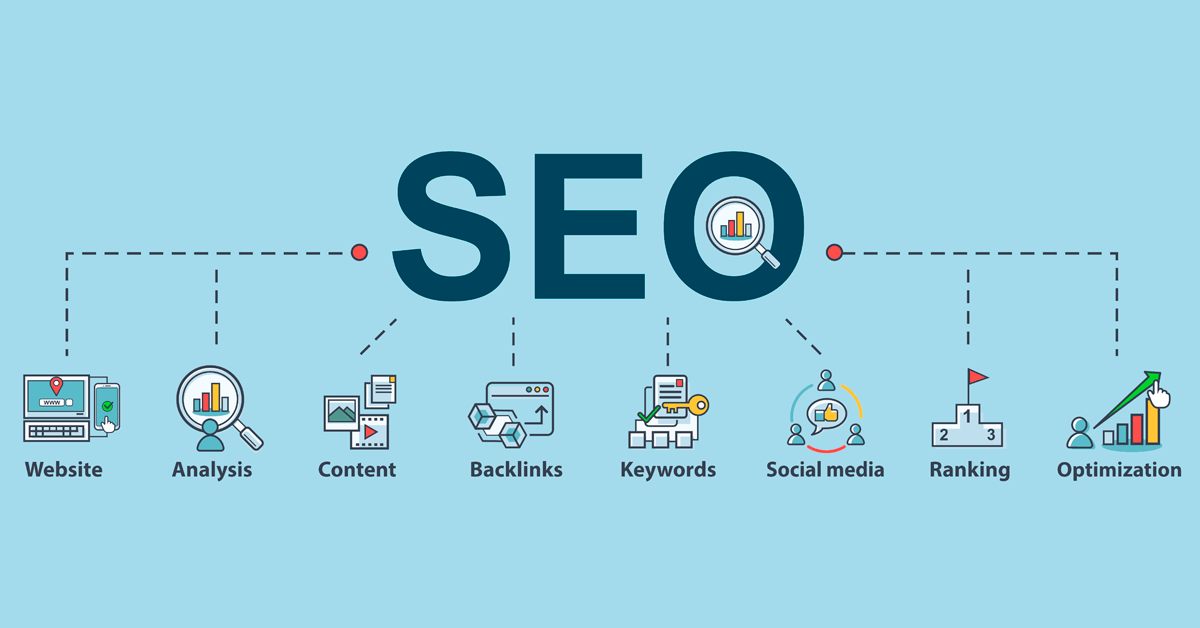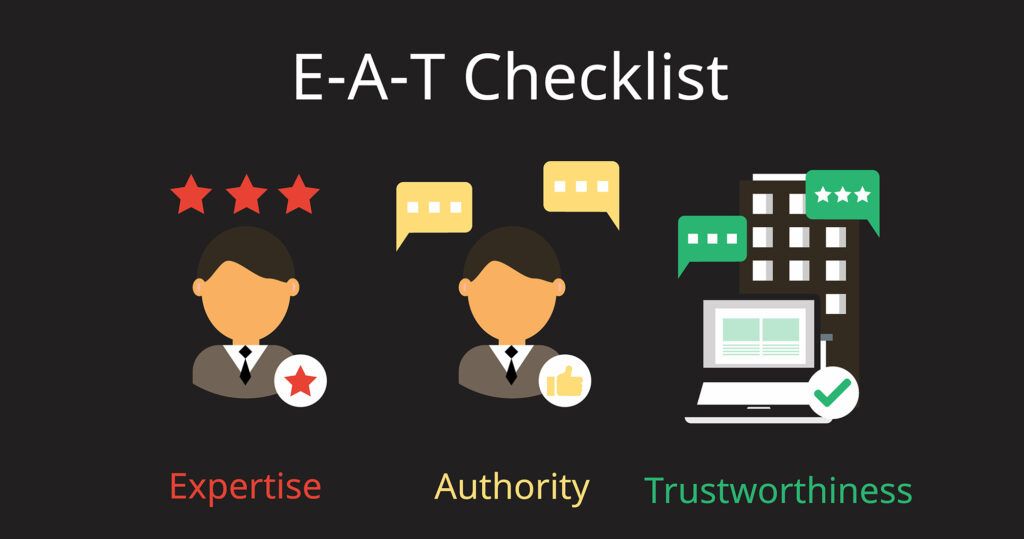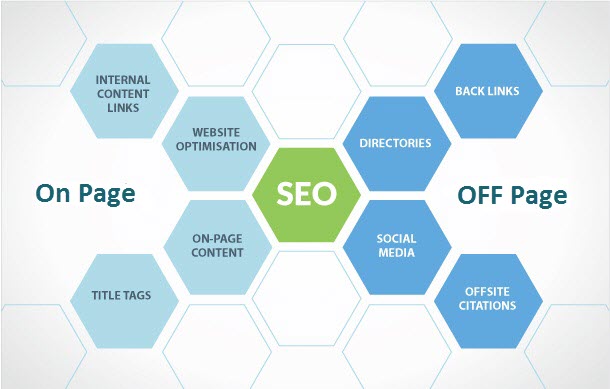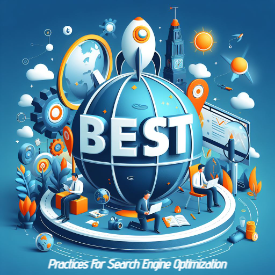Best Practices For Search Engine Optimization In today’s digital landscape is crucial for any website owner looking to thrive online. SEO encompasses a range of strategies and techniques aimed at improving a website’s visibility in search engine results, ultimately driving organic traffic and increasing engagement.
In this comprehensive guide, we’ll go into the fundamentals of SEO best practices and how they can benefit website owners in the long run.
Definition of SEO and Its Significance
Search Engine Optimization (SEO) is the process of enhancing a website’s visibility and relevance in search engine results pages (SERPs) through organic (non-paid) methods.
It involves optimizing various aspects of a website, including content, structure, and performance, to align with search engine algorithms and user intent.
SEO, in essence, involves optimizing your website to rank higher in search engine results pages (SERPs) for relevant queries. This optimization increases visibility, enhances user experience, and drives qualified traffic to your site.
Understanding and implementing SEO best practices is essential for staying competitive in today’s crowded digital space.

Significance of SEO:
In today’s digital age, where the internet serves as the primary source of information and commerce, SEO plays a crucial role for businesses and individuals alike. Here’s why SEO is significant:
- Increased Visibility: With millions of websites competing for attention, SEO helps your website stand out by improving its ranking in search results. Higher visibility means more opportunities for users to discover your content, products, or services.
- Targeted Traffic: SEO allows you to attract relevant, high-quality traffic to your website. By optimizing for specific keywords and user intent, you can connect with individuals who are actively seeking information or solutions related to your niche.
- Cost-Effectiveness: Unlike paid advertising, which requires ongoing investment, SEO offers a cost-effective means of driving organic traffic to your website. While it requires time and effort upfront, the long-term benefits of SEO can outweigh the initial investment.
- Credibility and Trust: Websites that appear at the top of search results are often perceived as more credible and trustworthy by users. By optimizing your website for SEO, you not only improve its visibility but also enhance its reputation in the eyes of both users and search engines.
- Competitive Advantage: In today’s competitive online landscape, having a strong SEO strategy can give you an edge over competitors. By outranking them in search results and attracting more traffic, you can solidify your position within your industry or niche.
- Measurable Results: SEO allows for detailed tracking and analysis of website performance. Through tools like Google Analytics, you can monitor key metrics such as traffic, engagement, and conversion rates, enabling you to refine your strategy for optimal results.
SEO is not just about ranking higher in search results; it’s about delivering value to users, building credibility, and achieving long-term success in the digital realm.
By understanding and implementing SEO best practices, you can position your website for sustained growth and relevance in an ever-evolving online landscape.
How Adopting SEO Best Practices Benefits Website Owners
Embracing SEO best practices offers a multitude of benefits for website owners.
From increased visibility and traffic to enhanced brand credibility and authority, optimizing your site for search engines can yield tangible results and foster long-term success.
Implementing SEO best practices offers a myriad of benefits for website owners.
- Increased Visibility and Traffic: By optimizing your website for relevant keywords and user intent, you can improve its ranking in search engine results pages (SERPs). This heightened visibility leads to more organic traffic as users are more likely to click on websites that appear at the top of search results.
- Targeted Audience Reach: SEO allows you to target specific demographics, interests, and search queries, ensuring that your content reaches the right audience. This targeted approach results in higher-quality traffic, as users are actively seeking information or solutions related to your niche.
- Enhanced Brand Credibility: Websites that rank higher in search results are often perceived as more credible and trustworthy by users. By appearing at the top of SERPs, you can bolster your brand’s reputation and instill confidence in potential customers, leading to increased trust and brand loyalty.
- Improved User Experience: SEO isn’t just about optimizing for search engines; it’s also about creating a seamless and enjoyable experience for users. By optimizing site speed, mobile responsiveness, and overall usability, you can enhance the user experience and encourage longer dwell times and higher engagement rates.
- Cost-Effective Marketing Strategy: Unlike paid advertising, which requires ongoing investment, SEO offers a cost-effective means of driving organic traffic to your website. While it may require upfront effort and resources, the long-term benefits of SEO can outweigh the initial investment, making it a highly efficient marketing strategy.
- Insightful Data and Analytics: SEO allows for detailed tracking and analysis of website performance through tools like Google Analytics. By monitoring key metrics such as traffic sources, user behavior, and conversion rates, you can gain valuable insights into your audience and refine your SEO strategy for optimal results.
- Competitive Advantage: In today’s competitive online landscape, having a strong SEO strategy can give you a significant edge over competitors. By outranking them in search results and attracting more traffic, you can establish your website as a leader within your industry or niche, ultimately driving growth and success.
In summary, adopting SEO best practices is essential for website owners looking to enhance visibility, attract targeted traffic, and achieve long-term success in the digital realm.
By optimizing your website for search engines and providing valuable content and experiences for users, you can position your website for sustained growth and relevance in an ever-evolving online landscape.
Overview of E-A-T and Its Relation to SEO
E-A-T, which stands for Expertise, Authoritativeness, and Trustworthiness, is a fundamental concept in SEO that plays a significant role in determining a website’s credibility and relevance in search engine results pages (SERPs).
Understanding E-A-T and its relation to SEO is crucial for website owners looking to establish authority, build trust with users, and improve their rankings.

Expertise: Expertise refers to the level of knowledge and proficiency demonstrated by the creators of a website’s content.
Websites that showcase expertise are seen as reliable sources of information within their respective niches.
To demonstrate expertise, website owners should provide accurate, well-researched content that reflects a deep understanding of the subject matter.
Authoritativeness: Authoritativeness pertains to the reputation and influence of a website or its creators within their industry or niche.
Authoritative websites are those that are recognized as leaders in their field and are trusted sources of information by both users and other websites.
Building authoritativeness involves earning high-quality backlinks from reputable sources, receiving mentions and citations from industry experts, and establishing a strong presence on social media platforms.
Trustworthiness: Trustworthiness refers to the reliability and credibility of a website’s content and creators. Trustworthy websites are transparent about their intentions, provide accurate and up-to-date information, and prioritize the needs and safety of their users.
To build trustworthiness, website owners should ensure the accuracy of their content, provide clear contact information and privacy policies, and address any concerns or feedback from users promptly.
Relation to SEO: E-A-T is closely intertwined with SEO, as search engines like Google aim to deliver the most relevant and trustworthy results to users.
Websites that demonstrate high levels of expertise, authoritativeness, and trustworthiness are more likely to rank higher in search results and attract organic traffic.
Search engine algorithms assess E-A-T factors through various signals, such as the quality and relevance of content, the credibility of backlinks, user engagement metrics, and the overall reputation of the website and its creators.
By focusing on E-A-T principles and providing valuable, trustworthy content, website owners can improve their SEO performance and enhance their visibility and credibility in SERPs.
E-A-T is a crucial aspect of SEO that emphasizes the importance of expertise, authoritativeness, and trustworthiness in establishing a website’s credibility and relevance.
By prioritizing these factors and consistently delivering high-quality content and experiences for users, website owners can strengthen their SEO strategy and achieve long-term success in the competitive digital landscape.
The Shift from Search Engine-Focused Strategies to People-First Content
Traditionally, SEO strategies revolved around appeasing search engine algorithms to boost rankings. However, there’s been a notable shift towards prioritizing user experience and relevance. Here’s why it matters:
User-Centric Approach: Instead of solely focusing on keywords and technical optimizations, the emphasis is now on creating valuable, user-centric content that meets the needs and preferences of the audience.
Engagement and Retention: By delivering content that resonates with users, websites can increase engagement, dwell time, and return visits, all of which are favorable signals to search engines.
Trust and Authority: Providing helpful, insightful content builds trust and establishes authority within your niche, leading to higher credibility in the eyes of both users and search engines.
Long-Term Sustainability: While search engine algorithms may change, focusing on user-centric content ensures long-term sustainability and adaptability in the ever-evolving digital landscape.
The shift to people-first content emphasizes the importance of prioritizing user experience and relevance over traditional search engine-focused strategies, ultimately leading to improved engagement, trust, and long-term success.
Understanding Your Audience: The Foundation of SEO
Understanding your audience is paramount in crafting effective SEO strategies. Here’s why it serves as the foundation:
Targeted Content Creation: By knowing your audience’s demographics, interests, and pain points, you can tailor your content to address their specific needs and preferences, increasing relevance and engagement.
User Intent Alignment: Understanding the intent behind users’ search queries allows you to create content that directly addresses their goals, resulting in higher click-through rates and improved rankings.
Data-Driven Decisions: Leveraging data and analytics helps identify trends, behaviors, and preferences, enabling you to make informed decisions and optimize your content and marketing efforts for maximum impact.
Building Relationships: Engaging with your audience through personalized content and interactions fosters trust, loyalty, and brand advocacy, ultimately driving long-term success and sustainable growth.
Understanding your audience forms the bedrock of effective SEO, guiding content creation, user experience optimization, and relationship-building efforts to resonate with and cater to the needs of your target audience effectively.
Keyword Research: Beyond Search Volume
Keyword research is no longer just about search volume; it’s about understanding user intent and delivering relevant content. Here’s why it’s crucial:
Relevance Over Volume: Prioritize keywords that align with your audience’s interests and intent, ensuring your content addresses their needs effectively.
Targeted Niche Targeting: Utilize long-tail keywords to target specific niches and capture highly engaged audiences interested in your offerings.
Balancing Optimization: While keywords are important, focus on natural, reader-friendly content, striking a balance between optimization and user experience.
Personalization and Engagement: Tailor your content to address user queries and provide value, fostering engagement and building trust with your audience.
Keyword research goes beyond search volume, emphasizing relevance, niche targeting, and engagement to effectively reach and resonate with your target audience.
On-Page SEO: Optimizing for People and Search Engines
On-page SEO focuses on optimizing individual web pages to improve their visibility and relevance in search engine results pages (SERPs). Here’s how to do it effectively:
Crafting Compelling Titles and Meta Descriptions: Write titles and meta descriptions that accurately describe your content and incorporate relevant keywords to improve visibility in search results.
Strategic Use of Headings: Break up content with headings (H-tags) to improve readability and signal the hierarchy and relevance of your content to search engines.
High-Quality, Original Content: Create unique, informative content that provides value to your audience and satisfies search engine algorithms.
Mobile-Friendliness and Fast Loading Times: Ensure your website is responsive and loads quickly on all devices to enhance user experience and SEO performance.
Incorporating Multimedia Elements: Use images, videos, and infographics to enrich your content and improve engagement, optimizing them with descriptive filenames and alt tags for search engines.

Effective on-page SEO involves optimizing various elements within your website to improve its visibility and relevance in search results, catering to both search engines and human users.
Building Authority with Off-Page SEO and Backlinks
Off-page SEO is vital for establishing your website’s authority and credibility. Central to this strategy is acquiring high-quality backlinks from reputable sources. Here’s how to do it effectively:
Backlinks Basics:
Backlinks are links from other websites to yours. They signal to search engines that your content is valuable and worthy of reference, boosting your site’s credibility and search rankings.
Strategies for Acquiring Backlinks:
- Create Exceptional Content: Produce high-quality, valuable content that naturally attracts backlinks from other websites.
- Guest Blogging: Contribute guest posts to industry-related websites to earn backlinks and showcase your expertise.
- Build Relationships: Engage with influencers and website owners in your niche to foster collaborations and link opportunities.
- Broken Link Building: Identify broken links on other sites and offer your content as a replacement, benefiting both parties.
- Content Promotion: Promote your content on social media and through outreach campaigns to increase visibility and attract backlinks.
Off-page SEO and backlinks are essential for enhancing your website’s authority and visibility in search results.
By implementing strategic link-building tactics and leveraging social media, you can strengthen your off-page SEO efforts and establish your site as a trusted resource in your industry.
Video
Conclusion: Balancing Technical SEO with a Human Touch
In conclusion, mastering SEO requires striking a balance between technical optimizations and a human-centric approach.
By prioritizing user experience, relevance, and credibility, website owners can achieve sustainable results and stay ahead in the ever-evolving digital landscape.
As you embark on your SEO journey, remember to apply these best practices consistently and adapt to the changing algorithms and user behaviors. By doing so, you’ll position your website for long-term success and
Since diving into SEO, my website has undergone a remarkable transformation. Through meticulous keyword research and strategic content optimization, I’ve witnessed a significant increase in organic traffic and higher rankings across relevant search queries.
This enhanced visibility has not only bolstered my website’s credibility but has also translated into tangible business growth, with a notable uptick in leads and conversions.
The supportive online community has been instrumental in my SEO journey, offering valuable insights and encouragement every step of the way.
Overall, my commitment to mastering SEO techniques has been instrumental in driving meaningful outcomes for my online presence.
Wealthy Affiliate provides expert guidance on SEO, helping users boost website visibility and rankings.
With tailored training and tools, mastering SEO techniques like keyword research and content optimization becomes straightforward, empowering users to drive organic traffic growth effectively. growth.
For further resources on SEO best practices, check out this comprehensive guide on SEO fundamentals for beginners.
We welcome your thoughts and questions in the comments section below. Engage with us and fellow readers to share your experiences and insights into the world of SEO!
